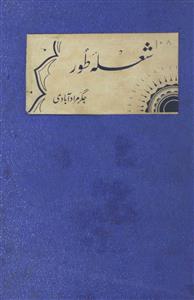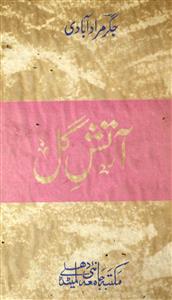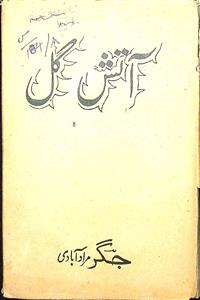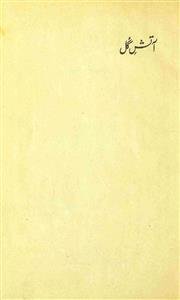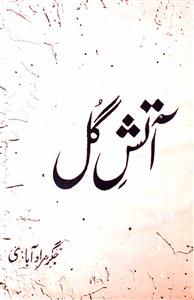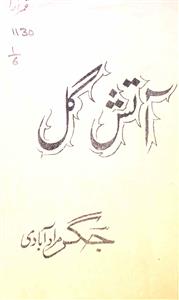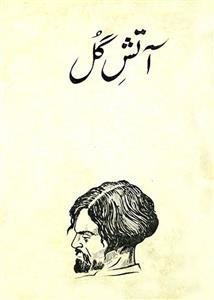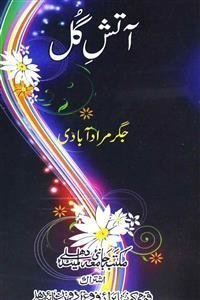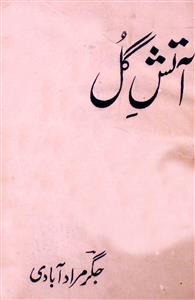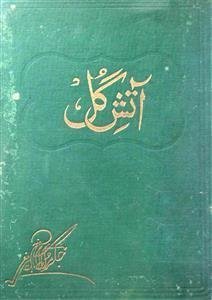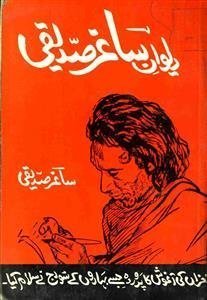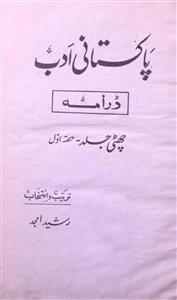 For any query/comment related to this ebook, please contact us at haidar.ali@rekhta.org
For any query/comment related to this ebook, please contact us at haidar.ali@rekhta.org
About The Book
جگر مرادآبادی بیسویں صدی کے اردو کے مشہور شاعروں میں سے ایک ہیں۔ان کی شاعری ان کی رنگارنگ شخصیت،رنگ تغزّل اور نغمہ و ترنم کی آمیزش کا نتیجہ ہے جس نے انہیں اپنے زمانے میں بے حد مقبول اور ہردلعزیز بنا دیا تھا۔ "شعلہ طور" جگر مرادآبادی کا دوسرا مجموعہ ہے یہ مجموعہ 1932میں منظر عام پر آیا۔اس مجموعہ کی شاعری پر روایتی غزل گوئی کا کافی گہرا عکس نظر آتا ہے ، ان کے اس مجموعہ میں ایک عام شاعری کی طرح جگر کا محبوب بھی قاتل، شمشیر بکف ، بے قفا اور عاشق بسمل ، مظلوم دیوانہ ،بیمار ، لاغر اور آوارہ نظر آتاہے۔ ،ہجر و وصال، قفس، بلبل، بجلی، نزع ، مرگ، محتسب ، ناصح ،قبر ، محشر اور دوسرے موضوعات کی بہتات نظر آتی ہے۔ اس مجموعہ میں ان کی چار دور کی غزلیں شامل ہیں۔ اس کے علاوہ نظمیں، مثنوی ہلال عید، رباعیاں اور فارسی کلام بھی شامل ہے۔
About The Author
Sheikh Ali Sikandar ( 1890-1960), known as a poet with the pen name of Jigar, was born at Moradabad, a place that he suffixed with his name like many other poets did as a matter of tradition. He did not receive any regular or formal education but learnt Persian at the initial stage and English at the level of his matriculation. He came to be known as an epicurean and a highly sociable man of pleasant disposition. He also acquired a somewhat mythic reputation as one who must drink in order to please the muse. Later, he abandoned this way of life and sought solace in a religious way of life.
Jigar got his first lessons in poetry from his father, Ali Nazar, who was a poet himself before he sought occasional advice from major poets like Dagh Dehlavi and Asghar Gondavi with whom he also lived in Gonda as a friend and benefactor. He emerged as a poet of acute romantic leanings and evolved a poetics that suited his thematic preferences and gave a definite identity to his poetry. He also earned his reputation as an iconic mushaira poet who earned huge applause from the audience. Known essentially for his ghazal that represented the stock themes of love and wine in a manner characterised by a unique musicality, he published his first collection Daagh-e-Jigar in 1928 followed by Shola-i-Toor in 1932. His third collection Aatish-e-Gul which appeared more than two decades later in 1954 earned him the prestigious Sahitya Akademi award. Jigar retains his position as one of the pillars of ghazal before the coming of the high modernists.
 For any query/comment related to this ebook, please contact us at haidar.ali@rekhta.org
For any query/comment related to this ebook, please contact us at haidar.ali@rekhta.org
Write a Review
Jashn-e-Rekhta 10th Edition | 5-6-7 December Get Tickets Here
